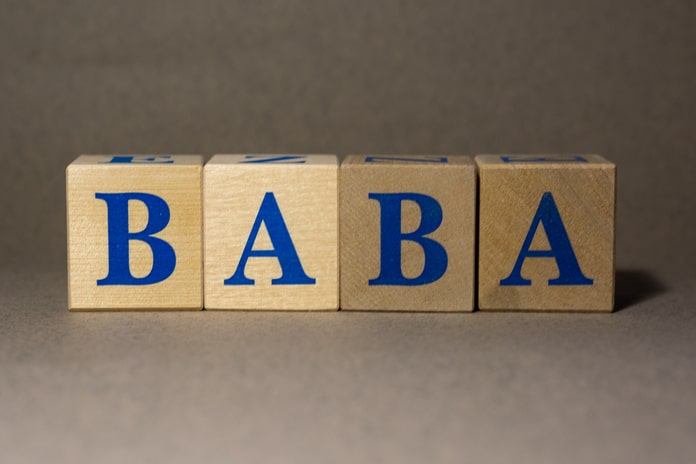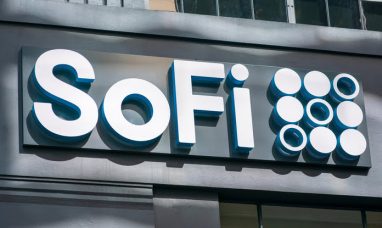In November of last year, we identified Alibaba Group Holding Limited (NYSE:BABA) as a value-growth option. This is the finest of both worlds. We elected to resist the urge to go long, believing that Alibaba had a difficult path ahead due to the downfall of its home country’s huge real estate bubble. Even though the value was becoming more enticing on a price-to-sales ratio, we elected to remain on the sidelines in May and explained why.
However, nothing prevents this from falling to 1.5X or below in a sinking real estate market with rising expenses. Earnings will always appear inexpensive at whatever price you examine it, but they are doomed to fall more. We believe the next conference call will highlight retail problems when real estate prices fall, and energy prices rise. We believe the stock will stay range-bound until the earnings picture becomes clear. The stock price skyrocketed following its Q4 results but has subsequently steadied at a position just slightly higher than when we last wrote. The market has recently focused on the possibility of delisting since several Chinese corporations are already doing so.
In Hong Kong, PetroChina Co. (PTR) fell 3.4%, while China Life Insurance Co. (LFC) and China Petroleum & Chemical Corp. (SNP) were also down more than 2%. Aluminum Corp of China Ltd. (ACH) and Sinopec Shanghai Petrochemical Co Ltd. declined. The rush to exit the US market resulted from escalating bilateral tensions and a failure to strike an agreement on allowing American authorities more access to Chinese enterprises’ financial data.
Alibaba has been in the news since it faced various audit standards issues. Meanwhile, experts are working hard to fine-tune their projections for this behemoth. Let’s look at the findings that have come out since we last wrote about this retailing behemoth and offer an update on our perspective.
June 2022 Results-Growth Be Gone
When we go past the expert forecasts, we can see how shaky these figures were for the erstwhile growth darling.
The stock gained on the announcement due to estimates being reduced sufficiently for a “beat.” revenue fell flat. In contrast, operating margins fell by nearly 20%. Net income was likewise slashed in half, as was adjusted EBITDA. Despite this, the Cloud category expanded at a 10% year-on-year pace.
Outlook
If analysts die on one hill, it will be their reluctance to ever price in a recession. As a result, profits will only move in one way. Up. In the case of Alibaba, the first quarter jolted them into pricing an earnings fall, but from there, it’s all upward. While everything is conceivable, China is presently facing one of the most difficult circumstances it has ever faced. We’re not talking about the self-imposed and inflicted “Zero-Covid” policy. We’re talking about the deflating of the world’s largest bubble.
Our previous analysis demonstrated that the leading signs of forwarding sales were bleak. Those early signs were entirely correct. So, guess what? China’s floor space has now dropped to 2009 levels. The country’s run rate is presently nearing the worst point of COVID-19. Is this a result of the Zero COVID policy? Yes, there is some contribution, but the majority is due to the bubble’s collapse. China built and built to power their GDP, and now all the chickens are coming home to roost.
The opposition to the presale system threatens up to $350 billion in payments, and Chinese officials have already started to restrict it. However, the issue is feeding on itself. As developers’ money dries up, more projects are halted, leaving more buyers furious and scared that they may never be completed. The government increasingly relies on lenders to bail out projects to keep developers viable.
Chinese developers are mostly relying on the notion that the government will intervene. All of this turbulence has eroded Chinese consumer confidence at the rate of a “StableCoin.”
Verdict on Alibaba
The current scenario makes us wonder if the macro environment is even slightly favorable to the type of sales growth that has been factored in. The latest retail sales increased by only 2.7%, prompting the People’s Bank of China to lower the MTLF interest rate. The current situation is exceedingly tough, and investors should take caution. Yes, valuations have fallen, and Alibaba is buying back shares and even laying off employees to restore profitability.
At 1.8X sales, you’re not paying nearly as much as the cowboys are willing to pay 10X sales at the top in 2020. So the chances are in your favor, but the dangers are high enough that this is a value trap for us, so we’re keeping away.
Featured Image: Megapixl © Qwer230586

















